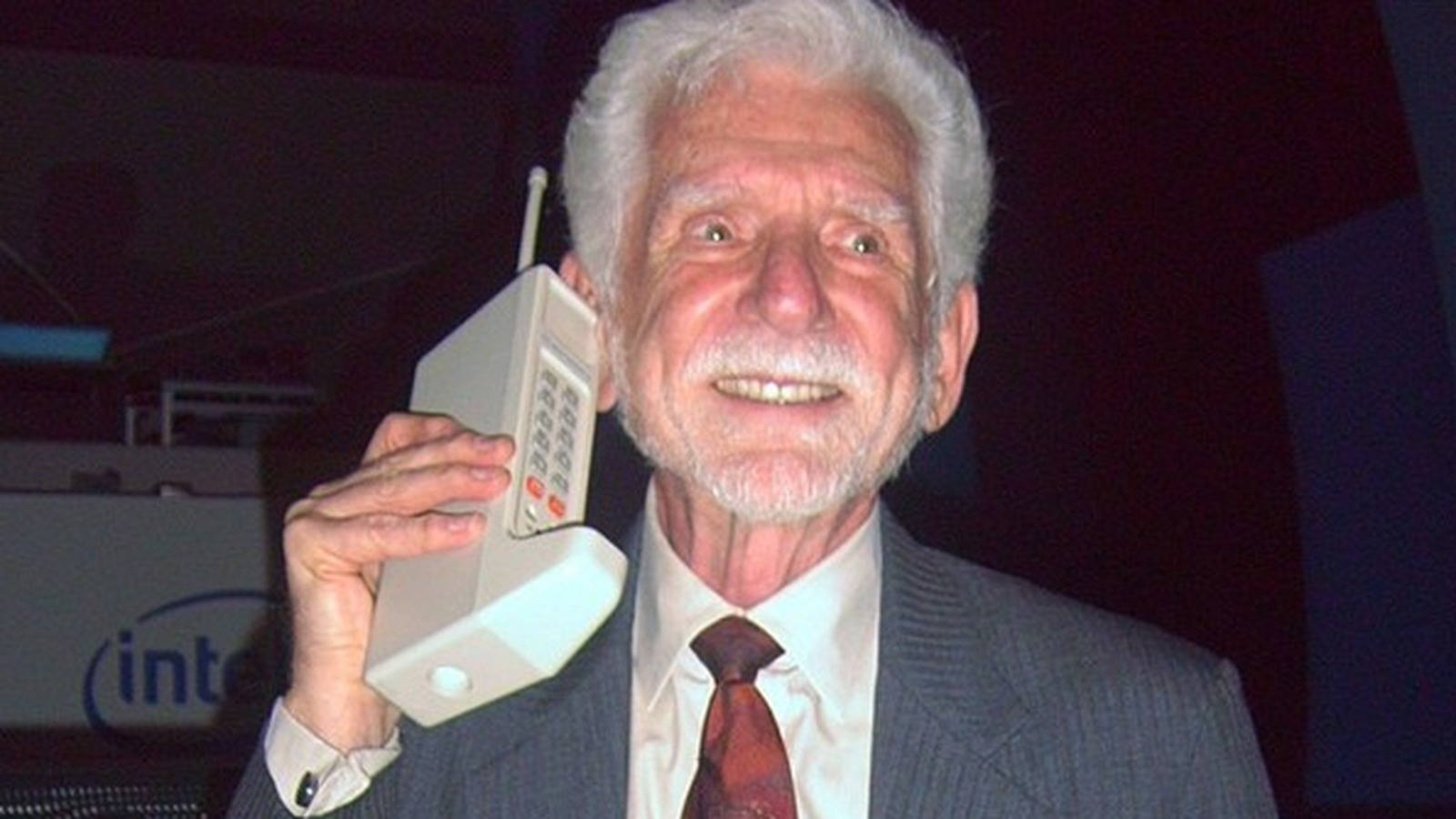
50 Years Since The First Cellphone Call: A Tech Revolution That Is Still Shaping The Future – SlashGear
April 3, 2023 marks the 50-year anniversary of the first cell phone call. Placed by Martin Cooper while standing on Sixth Avenue in Manhattan, the first call was dialed with a massive device. “I’m calling you on a cell phone, but a real cell phone, a personal, handheld, portable cell phone,” Cooper told Joel Engel, an engineer at Bell Labs and a competitor of Motorola (the company Cooper worked for). This flex over his rival — a peer also working to develop cellular calling technology — was a harbinger of things to come.
Cooper’s first call predated the first consumer models by around 10 whole years. Eventually, the DynaTAC 8000X would become available to the public, but for the privilege of untethered phoning, users would have to pay $3,900 (roughly $12,000 in today’s equivalent) and cart around a two-and-a-half pound, and foot-tall monstrosity.
The prototype cellular device dialed by Cooper was built off of another technological innovation, a 1960s two-way radio devised to assist the Chicago Police Department. Portable phones originally made the game of phone tag that once plagued groups trying to organize a meetup near obsolete. Later, the tool would evolve to include text messaging, music storage and playback, and even access to the internet, at the tap of a finger.
[Featured image by Rico Shen via Wikimedia Commons | Cropped and scaled | CC BY-SA 3.0]
Nearly two-thirds of people own a cell phone today
 Evgeny Atamanenko/Shutterstock
Evgeny Atamanenko/Shutterstock
Martin Cooper’s breakthrough not only shaped how humans communicate with one another, but it changed history. Cooper told the Chicago Tribune (via Zoom): “Guess who were the first people who benefitted from the cellphone? Think about it for a second. Real estate agents do two things — show homes, or answer the phone when somebody wants to buy a home. The cellphone meant they could do both at the same time.”
This novel workplace condenser meant that realtors were able to perform the entire scope of their work while out in the field, drastically improving their ability to make sales. On one hand, this likely skyrocketed the monetary earnings of early adopters within the profession.
However, there was also a sharp drop in the median home price to household income ratio from 1983 to 1984 (meaning homes became more affordable), while median prices themselves steadily rose throughout the 1980s. Perhaps, this is partially a function of a brand-new workplace communication tool positively impacting users’ lives.
Today, around two-thirds of all people in the world own a phone. This improves not only communication among family, friends, and colleagues, but also grants immediate access to information, entertainment, and even avenues for earning money — just like those early-adopting real estate agents 40 years ago.
Cell phone technology is continuing to innovate to this day
 Anderson Coelho/Getty Images
Anderson Coelho/Getty Images
Today, cell phones can do a whole lot more than facilitate communication. Cellular devices are used to track workouts, order food and groceries, capture video and share photographs, and much more. These tools have become an integral piece of most contemporary humans’ daily lives.
In fact, the average American checks their phone 96 times and spends almost five-and-a-half hours using the device per day. It’s hard to predict the future world that any new technology will shape (we’re seeing this play out once again with new and innovative AI tools, for instance). However, the cell phone is one that has truly impacted virtually everything that humans do across the globe.
Martin Cooper, now 94 years old, is in awe of the tool that cellular phones have become. When asked by the Chicago Tribune if he ever imagined the vast array of functions the cell phone would eventually develop, he gushed, “Oh, not at all. We were so proud of all the technological breakthroughs we made just to place a person-to-person call.”






































































